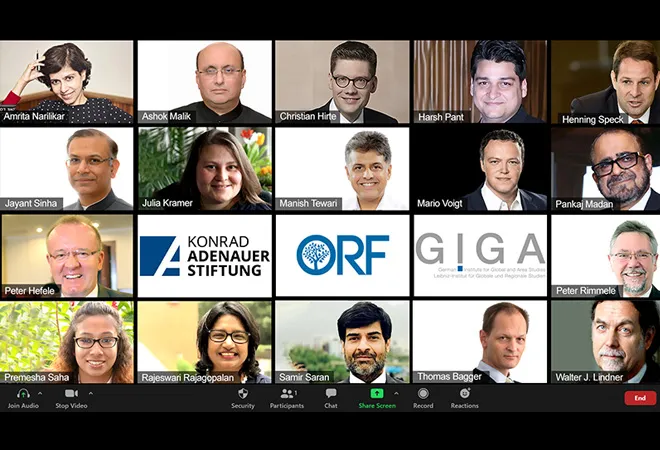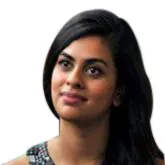Multilateralism is in crisis! It is failing and flailing as new developments challenge its writ and its incubators and creators undermine it. The liberal international order finds itself at an inflection point as well, with both the ‘liberal’ and the ‘order’ being reconsidered by many. The coronavirus onslaught has served to underscore the precariousness of global governance, exposing fault-lines within key institutions and among important constituencies. However, despite being at its weakest, people, pundits and practitioners all continue to root for a multilateral order upon which progress is predicated. There is good reason for this – multilateral arrangements remain the most effective mechanisms to respond to the complexity of contemporary challenges we face today. “Resuscitating multilateralism”, therefore, must remain at the top of the global agenda, with like-minded actors such as India and the European Union (EU) charting the way for its reform and revival. Furthermore, as the world’s largest and most diverse democratic unions, it is clear that these geographies will have to carry an additional burden and responsibility as we devise and discover the post-pandemic world order.
It is within this context that the Observer Research Foundation in collaboration with Konrad-Adenauer-Stiftung and the German Institute for Global and Area Studies, convened a virtual India-Germany parliamentary roundtable on The Future of the World Order.
The session saw senior parliamentary representation from both Indian and Germany, with experts and practitioners from government and academia also joining the discussion (see annexure 1). The political leaders included Jayant Sinha and Manish Tewari, Members of Parliament from India and Christian Hirte, Member of the Bundestag and Prof. Dr. Mario Voigt, Member of the State Assembly, Thuringia, from Germany.
The roundtable, held under ‘not for attribution’ rules, focused on three key themes:
1. Imperative to rethink and reform multilateral arrangements in the wake of the pandemic.
2. Evaluating partnerships and coalitions important to navigate the international order disrupted by the strategic rivalry between China and the United States.
3. Reimagining the India-EU partnership and the Germany-India collaboration in the days ahead.
Multilateralism 2.0
During the session, there was near consensus that multilateralism is valuable in not only ensuring good governance and delivery of global public goods but is instrumental in maintaining stability in an increasingly disrupted world. With the onset of the COVID-19 pandemic, the need for collective action and international cooperation has never been clearer. However, participants highlighted, lack of transparency coupled with the inability to effectively respond to global crises, has led to an erosion of trust in old regimes. There is a significant impetus, therefore, to reform, and in some cases, redesign the arrangements that form the multilateral governance framework, to ensure the relevance and viability of various institutions.
In the wake of the coronavirus pandemic, the World Health Organisation (WHO) has become yet another posterchild of failure of the multilateral system. Pandemic politics continues to plague the institution, and instances of mismanagement and information suppression have uncovered a deep-rooted crisis. Participants recognised that mitigating this crisis would require coordinated efforts by actors such as India and the EU in the “depoliticization” of these institutions, reinstating principles such as neutrality and transparency in their organisational ethic. Therefore, the EU-led effort in coordinating an international investigation into the origin of pandemic, and the WHO’s response, is a watershed moment and may become the testbed for reviving and reforming the multilateral system. A stronger India-Germany and India-EU partnerships at these institutions and forums would be necessary in the days ahead.
US and China Inc.: Managing Bipolarity
The geopolitical contest between China and the United States has set both nations on a collision course towards a new type of a Cold War. As the pandemic re-intensifies these hostilities, it has also accelerated the process of “de-globalisation”, with the retreat of the global economy threatening the multilateral trading and economic order. The US will continue to view its foreign policy through a “China lens”, while China will continue to be resolute in pursuing its ambitions. This is perhaps also visible in the current crisis of the WHO, with the institution practically held hostage by these powers. Further, as great power politics continues to play out on international podiums, it has given rise to geographical arenas of contestation, most notably the Indo-Pacific. Several participants argued that both the US and China are fixated on the region, with both powers attempting to consolidate power and create exclusive zones.
If history is any guide, this bipolarity is cause for grave concern, but it offers immense opportunity – “now is the time for increased cohesion and collective action”. Throughout the session, there was consensus that the US-China trade war, offers India and the EU a unique opportunity – to provide a “more palatable version of G2 power” between them. They together have the potential to attract other partners and provide a basis for redesigning multilateralism and globalisation itself-– enshrined in the values of rule of law and international cooperation.
Reimagining the India-EU Partnership
Discussions throughout the roundtable were anchored around the India-EU partnership. Most agreed that it is well-primed to form the bedrock of a future world order having the potential to stitch together a cooperative international system. As both powers share principles that place emphasis on rules-based multilateralism, the imperative is to “inject realism” into the relationship and work towards creating a pragmatic and robust coalition for our common future.
The last few years have seen a deadlock in the EU-India Free Trade Agreement negotiations, owing to staunch disagreements on key issues such as tariffs and data protection. Taking cognizance of this, many participants suggested that the “political and diplomatic weight” must be instead directed towards entering sectoral agreements around convergent sectors such as clean energy and technology. This was conceptualized as a “prosperity partnership” where smaller mutually beneficial agreements could create the momentum needed to give rise to a grandfather agreement for the future. In an unstable world, both India and EU must renew their efforts towards such an objective.
Looking Ahead
All leaders and participants agreed that such virtual and real (at a later date) roundtable discussions and informal conversations must be continued and expanded to include more policy practitioners from India and Germany. The organisers also agreed to continue with this format and reconvene the next iteration with another set of specific discussion items at an early date.
Annexure 1 – List of Participants
Aastha Kaul, Assistant Manager (Projects), Observer Research Foundation
Amrita Narlikar, President, German Institute for Global and Area Studies
Ashok Malik, Additional Secretary, Ministry of External Affairs, India
Christian Hirte, Member of the Bundestag, Germany
Harsh Pant, Director, Studies, Observer Research Foundation
Henning Speck, National Security Advisor to the CDU/CSU Parliamentary Group, Federal Parliament of Germany
Jayant Sinha, Member of Lok Sabha and Chairperson, Parliamentary Standing Committee on Finance, India
Julia Kramer, Chief Officer to the President, German Institute for Global and Area Studies
Manish Tewari, Member of Lok Sabha, India
Mario Voigt, Member of the State Assembly, Thuringia, Germany
Pankaj Madan, Deputy Head, India Office, Konrad-Adenauer-Stiftung
Peter Hefele, Head, Team Asia-Pacific, Konrad-Adenauer-Stiftung
Peter Rimmele, Resident Representative, India, Konrad-Adenauer-Stiftung
Premesha Saha, Associate Fellow, Observer Research Foundation
Rajeswari Rajagopalan, Distinguished Fellow, Observer Research Foundation
Samir Saran, President, Observer Research Foundation
Thomas Bagger, Director-General for Foreign Affairs, Bundespräsidialamt, Germany
Walter J. Lindner, Ambassador of Germany to India

This report was written by Aastha Kaul, Assistant Manager (Projects), Observer Research Foundation, Delhi
The views expressed above belong to the author(s). ORF research and analyses now available on Telegram! Click here to access our curated content — blogs, longforms and interviews.





 PREV
PREV


